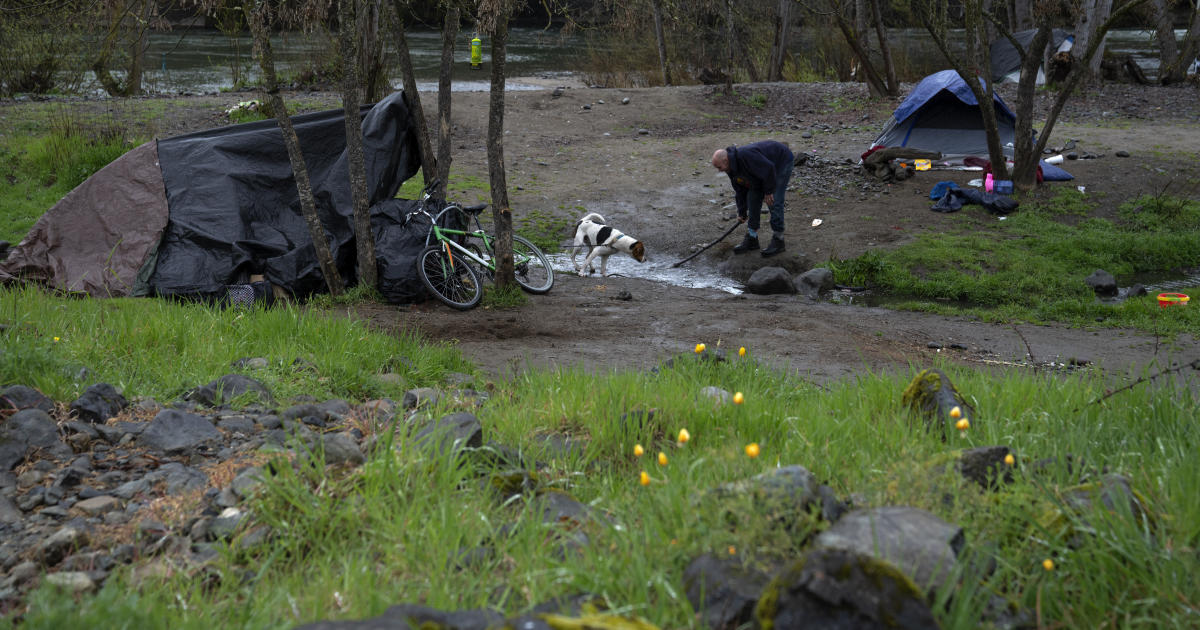What Amy Coney Barrett said in 2016 about confirming justices in an election year
Washington — Judge Amy Coney Barrett, one of the leading contenders to fill the Supreme Court seat left vacant by the death of Justice Ruth Bader Ginsburg, said in 2016 that she did not think precedent "establishes a rule for either side in the debate" over replacing Supreme Court justices during an election year.
"It shouldn't be a surprise that the Senate is willing to push a president's nominee through in an election year when they share the same political affiliation," Barrett, a professor at Notre Dame Law School at the time, told CBSN in February 2016.
Barrett, now a judge on the 7th Circuit Court of Appeals, was speaking shortly after the death of Justice Antonin Scalia, the court's most conservative member for whom she had clerked. After his death, Republican Senate Majority Leader Mitch McConnell quickly vowed not to consider then-President Obama's nominee to fill the seat before the 2016 presidential election.
Barrett was asked whether prior Supreme Court vacancies provided any guidance for approving a nominee during an election year.
"I gather that there have been six in the 20th century, and 11 if you go back to the Civil War, of confirmations that happened during presidential election years," Barrett said. "But I think the question is, what does this precedent establish? And I don't think it establishes a rule for either side in the debate."
Watch Barrett's full 2016 interview in the video below:
The battle over Scalia's replacement now serves as the backdrop for the debate over whether the Republican-controlled Senate should confirm Ginsburg's replacement so close to November's election. Democrats accuse McConnell and GOP leaders of hypocrisy for moving forward with a nomination, arguing the winner of the presidency in November should select the next justice under McConnell's own reasoning. Republicans say the precedent against filling Supreme Court vacancies during election years only applies when different parties control the White House and Senate, and they are now gearing up to quickly confirm Mr. Trump's eventual nominee.
In the 2016 interview, Barrett noted the differences between the confirmation of Anthony Kennedy in 1988 — the last nominee to be confirmed by a Senate controlled by the opposing party during an election year — and the dynamics surrounding Scalia's replacement.
"Justice Kennedy, you know, the arguments will be that that situation was distinguishable," Barrett said. "The vacancy did not arise in the presidential election year. It arose the year before, in June, when Justice Powell retired. And Justice Kennedy was nominated in November of the prior year. Moreover, he was nominated after Bork's nomination failed and [Judge Douglas] Ginsburg withdrew his nomination."
Barrett also pointed to the drastic shift in the court's ideological makeup that would result if a Democratic president replaced Scalia with a more liberal justice, noting that Kennedy replaced a justice of the same ideological bent.
"Moreover, Kennedy is a moderate Republican and he replaced a moderate Republican, Powell. We're talking about Justice Scalia, you know, the staunchest conservative on the court, and we're talking about him being replaced by someone who could dramatically flip the balance of power on the court," she said. "It's not a lateral move."
Barrett added that historical parallels were an imperfect way to evaluate current dynamics regarding the Supreme Court, saying that "the reality is, we live in a different time."
"Kennedy was confirmed unanimously. So, incidentally, was Scalia. And this is not the time we live in now. Post-Bork, you know, confirmation hearings have gotten far more contentious," Barrett said.
"I think, in sum, the president has the power to nominate, and the Senate has the power to act or not, and I don't think either one of them can claim that there's a rule governing one way or the other," she added.
A month after her comments, Mr. Obama nominated Judge Merrick Garland to fill Scalia's seat. McConnell refused to move forward with the nomination, and the seat remained vacant until 2017, when Mr. Trump nominated and the Senate confirmed conservative Neil Gorsuch to the high court.



